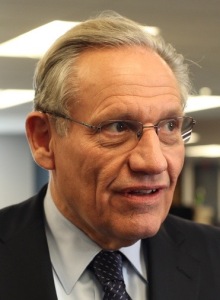
Something that Donald Trump said after his disastrous debate with Kamala Harris served to confirm my Richard Nixon Unified Field Theory of Everything.
The morning after the debate, Trump called in to Fox News, and he was mighty unhappy. He began complaining about ABC News and its debate moderators, David Muir and Linsey Davis, who had the temerity to correct him when he said that undocumented immigrants are feasting on pets fricassee and that Harris and her running mate, Tim Walz, support “executing” infants after they are born. Then he issued a threat:
I think ABC took a big hit last night. I mean, to be honest, they’re a news organization. They have to be licensed to do it. They ought to take away their license for the way they did that.
Now, ABC is a network, and it doesn’t hold a license. But it does own stations in some of the largest media markets in the country, including New York, Los Angeles and Chicago. (The ABC affiliate in Boston, WCVB-TV Channel 5, is owned by the Hearst chain.) So even though no one can take away a non-existent license from the ABC network, a fact that Trump may or may not understand, he could threaten local licenses.
Which brings me to Nixon. After he won re-election in 1972, his presidency started to unravel over the Watergate scandal — and coverage of that scandal was being driven by The Washington Post. One of Nixon’s responses was to threaten (not in so many words, mind you) to pull the licenses from several television stations that the Post then owned. For instance, a close friend of Nixon’s, Cromwell Anderson, headed up a group that challenged the Post’s license at a Miami TV station. Then-publisher Katharine Graham wrote in her memoir (free link), “Personal History”:
Anderson began to move against our station in Miami in September of 1972. This happened to be the same month Nixon (as later heard on the tapes) said that The Post would have “damnable, damnable problems” about our license renewals, a phrase that was censored when the tapes were first released by the White House….
[T]he legal costs of defending the licenses added up to well over a million dollars in the 2½ years the entire process took — a far larger sum then than now for a small company like ours.
Back then, presidents and former presidents didn’t blurt out such threats on national television. They worked behind the scenes, and Graham couldn’t be sure if Nixon had a direct role in the license challenges or not. Then as now, though, allowing the government to have a say in regulating the media can lead to threats and retaliation — something that Nixon took advantage of, and that Trump would like to emulate.
Media notes
• My Northeastern journalism colleague John Wihbey and I spoke with Patrick Daly of Northeastern Global News about why some media outlets in the U.K. are charging readers an extra fee if they don’t want to be tracked by advertising cookies. I told Daly that the practice hasn’t caught on in the U.S. because most people don’t care all that much about privacy. Daly, by the way, is based in Global News’ London office, where Northeastern has a campus.
• The once-great Baltimore Sun has fired reporter Madeleine O’Neill for comments she made on the Sun’s internal Slack channel about the paper’s newish owner, Sinclair Broadcast Group chair David Smith. Among other things, the op-ed page has been running pieces by Smith’s buddies without disclosing that Smith has been funding the causes they’re pushing. Fern Shen of the Baltimore Brew has the story.


 By Bill Kirtz
By Bill Kirtz